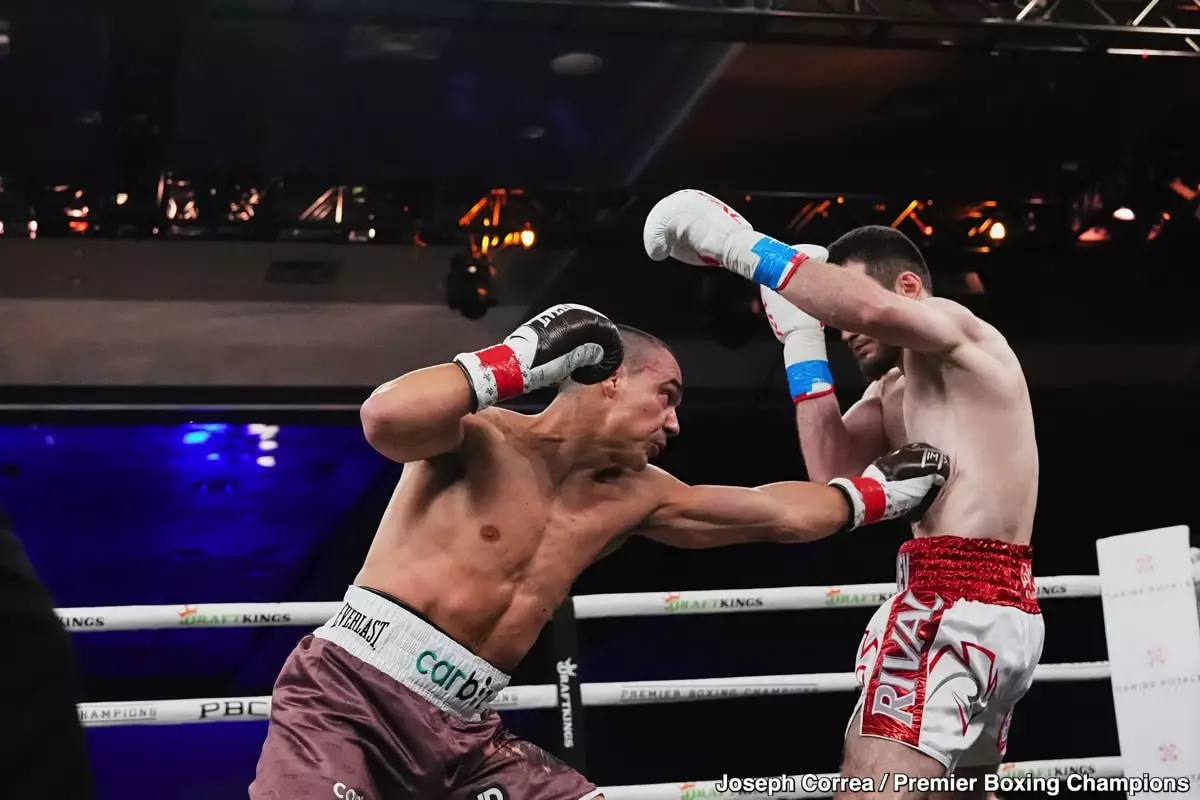By BoxingHit Staff-
Tim Tszyu’s recent bout against Bakhram Murtazaliev, which ended in a third-round TKO loss, has ignited discussions regarding the complexities and pressures faced by professional boxers today. The fight, characterized as a challenging encounter against an undefeated champion, raised eyebrows particularly due to Tszyu’s recent performances. Critics like Sergio Mora, a former 154-pound titleholder, have pointed fingers at what they describe as “bad matchmaking,” indicating that Tszyu’s camp may have miscalculated both the timing and selection of opponents.
While the idea of matchmaking is crucial in boxing—to ensure that fighters are pitted against opponents they can realistically face without risking their careers—one must also consider the fighter’s own ambition and drive. Tszyu, driven by the desire to establish himself among the elite in the sport, opted for a high-risk bout that, in the eyes of some, was unnecessary given his recent adversity in the ring.
Mora’s perspective appears to reflect a broader concern within boxing: the notion of cherry-picking opponents to build careers without facing legitimate dangers. This criticism does resonate with a segment of boxing fans who argue that the sport is losing its competitive edge. Critics worry that prioritizing safe fights over high-stakes encounters desensitizes the audience and renders the sport less thrilling, and this contributes to boxing’s struggles to gain the mainstream popularity enjoyed by sports like basketball or football.
Indeed, some boxing purists advocate for rigorous challenges, promoting the idea that true legacy is built on the back of difficult fights rather than “safe” matches that skirt the toughest competition. This sentiment raises the question: does Mora’s stance on protecting fighters from high-risk bouts ultimately stifle ambition? If a fighter like Tszyu, after a tough loss, opts for an uncertain yet bold challenge, should he be lauded for bravery rather than critiqued for recklessness?
The boxing landscape is littered with stories of fighters who chose to take difficult paths rather than play it safe. Tszyu, with aspirations of climbing to the top of the junior middleweight division, aimed to secure the IBF title held by Murtazaliev not just for personal glory, but as a strategic move to potentially set up larger fights against big names like Terence Crawford and Sebastian Fundora. Therefore, one might argue that Tszyu’s choice to face Murtazaliev is commendable, as it reflects an ambition to challenge himself against formidable opponents, rather than simply seeking out easier victories.
In contrast, a fighter like Crawford’s choice to step back from Murtazaliev, favoring a fight against a different, lesser-known champion, highlights the delicate balancing act between safeguarding one’s legacy and seeking lucrative opportunities. While for some, this may appear as strategic maneuvering, critics suggest it could lead to a lack of authenticity in the sport, flaunting the belief that fighters are prioritizing their records over their legacies.
Mora’s critique of Tszyu’s decision stands amidst a climate of evolving perceptions about what constitutes courage in boxing. The line between calculated risks and foolhardy moves can be tenuous. The boxing community must grapple with the impact of such decisions—not only on fighters’ careers but also on the integrity of the sport itself. Perhaps Tszyu’s loss reveals more profound truths about the high-stakes nature of boxing and the continual tug-of-war between risk and reward.
The conversation surrounding Tim Tszyu’s fight against Bakhram Murtazaliev is emblematic of a broader debate within boxing. The sport thrives on both heroism and strategy, and while some may criticize the choices fighters make, it’s essential to recognize the ambition that drives them to seek out challenging encounters. In a sport defined by bravery, the question remains: are we willing to embrace risk as part of the journey toward greatness? Only time will tell if Tszyu’s gamble pays off, but it undeniably adds to the narrative fabric of contemporary boxing.


Leave a Reply